Double Cross And The Case of Miscasting
Like a broken watch, bad actors too can be right for some roles at some point irrespective of the film but there is no antidote to actors hired for unsuitable roles. Films that ought to have enjoyed a wider recognition or audience appreciation sometimes end up losing out due to miscasting. When it comes to popular Hindi cinema, this trait becomes more pronounced every time there is a transition such as the early 1970s where had some films been blessed with better casting, many of the stereotypes — that we're still trying to do away it — could have been nipped in the bud. One such film that comes to mind is Gogi Anand’s Double Cross (1972) that pushed the envelope in terms of showing the hero unlike what popular Hindi cinema of the time was used to but failed to leave an impact thanks to the gross miscasting of the lead.
Chances of the present generation of Hindi cinema fans being aware of Vijay ‘Goldie’ Anand’s work as a filmmaker beyond a Guide (1965), a Teesri Manzil (1966) and a Jewel Thief (1967) are rare, and therefore, familiarity with the legendary auteur’s work in front of the camera would be rarer still. Goldie Anand, the actor, readily brings to mind images of Haqeeqat (1964), and Main Tulsi Tere Aangan Ki (1978) but besides a strong supporting number or playing the sidekick to elder brother Dev Anand in Tere Mere Sapne (1971) and Chupa Rustam (1973), he also played the lead in handful of films with Kora Kagaz (1974) being the most prominent. But the very first film where Vijay Anand played the lead was Double Cross, and unfortunately looked too old while portraying a spurned lover, who in order to teach the woman that left him for a richer man a lesson has an affair with her stepdaughter of sorts.Ajay Arya (Vijay Anand) can’t get over the fact that the love of his life Sonia (Ranjeeta Thakur) has left him for the much older and richer Magan bhai (Madan Puri). He bumps into Lily (Asha Sachdev) at a bar and she introduces him to David Uncle (David Abraham), who transforms him into a master crook. Ajay assumes the identity of Jimmy, a thief, and a philander, and although Lily develops a soft corner for him, he not only continues to stalk Sonia but also starts wooing Rekha (Rekha), a rich heiress under the guardianship of Magan bhai. While pursuing Rekha, Ajay introduces himself as ‘Vijay’, a photographer besotted by Rekha’s beauty, but he can’t fool Sonia. Sonia confides in Magan about her past and the two then try to get Rekha to marry Magan’s son from previous marriage, Pritam (Kuljeet), as that would ensure their access to her wealth.
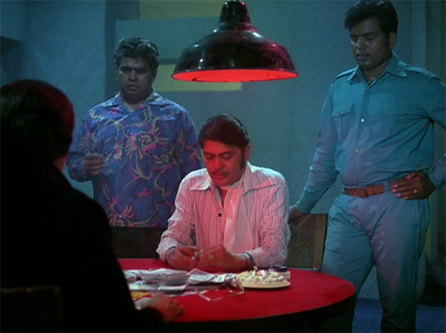
Things begin to get complicated as Magan spots 'Jimmy' with Lily and Rekha starts doubting him, and if that wasn’t enough, Lily gets pregnant. By now, Rekha is convinced that irrespective of what he claims Vijay is, in fact, playing her and just when she is about to pull the plug on their relationship, Vijay tells her about his twin, Ajay, who took to crime following heartbreak. It’s then the audience realize that Rekha’s lover and the one juggling Lily and Sonia are two different men. From this point onwards, Double Cross becomes a thriller where Lobo (Dev Kumar) kidnaps Lily in order to coerce Ajay/Jimmy to rob the Kohinoor diamond that is on display in Bombay and the gangster, too, gets confused between Ajay and Vijay and ultimately there is a shootout where one of the twins succumbs.
The thing that makes Double Cross stand apart from a slew of similar films is the manner in which it tackles the relationship that the hero shares with the women. Of course, the film has many elements of Anand’s own heist classic Jewel Thief but the ease with which it shows Sonia and Ajay in post-coital bliss right in the beginning or the matter-of-fact style in which Ajay sleeps around while plotting his revenge suggests Double Cross is more than a straight caper.
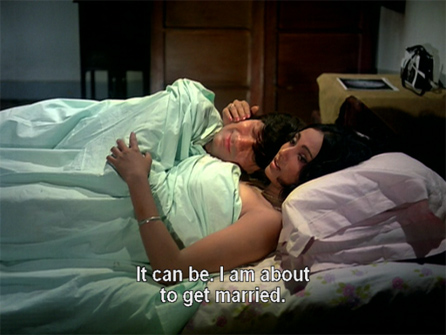
Unluckily, the early instances that promised something exceptional are also the very things that mars the film but Vijay Anand playing the lead sealed the film’s fate. Anand might have been just 39 when he featured in the film but he sports a horrendous toupee that attracts more attention than everything that this campy film had to offer. The set-pieces where Anand dons different avatars – a Sikh Income Tax officer, a middle-aged bearded businessman, a Maulana, a bangle seller, etc. – are fun and well-executed because of the make-up as well as Anand’s brilliant acting but once he reverts to being Ajay/Vijay/Jimmy everything goes downhill. While Anand can still be convincing in the comic or dramatic scenes, he simply sticks out like a sore thumb in the song-and-dance sequences and the romantic as well as action scenes.
The film’s narrative, too, appears unconvincing once the double-role is revealed. While watching the film, you get a sense that perhaps this trope might have been an afterthought. There is a scene towards the final act of the film where Ajay/Jimmy muses to Lily about a girl (Rekha) in love. This is the turning point where to the audience it seems like Rekha’s innocence could have rekindled humanity within Ajay/Jimmy that had been crushed by Sonia's deception. Moreover, till this point, the double role hasn’t been introduced so one assumes that Jimmy/Ajay and Vijay are just three versions of the same man. Double Cross’s intriguing portrayal of the lead, as well as the themes it tries to explore by not falling prey to a filmy depiction of society, takes a beating when the standard good and bad double-role treatment takes center stage.
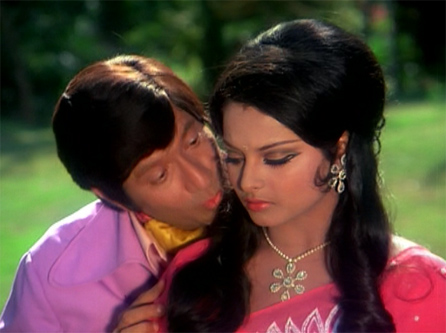
The fact that a young talent, Gogi Anand, helmed the film is more than evident from the treatment, the themes, the shot taking, some brilliant editing as well as succinct dialogues. Even RD Burman’s music, especially the background score with the western lone gunslinger kind motif for Ajay/Jimmy is a departure from the era’s trends. Gogi Anand also happened to be Dev and Vijay’s nephew, and had assisted the latter on numerous films and was supposedly someone that both the brothers trusted immensely. Perhaps Gogi’s inability to look beyond Goldie or Dev sahab, who featured in Gogi’s final film, Darling Darling (1977), became his undoing. Nestled in between his two films with his uncles, Gogi also directed a little-seen film called Doosri Sita (1974) that featured a pregnant woman (Jaya Bachchan) who delivers while awaiting a death sentence in jail. The failure of Doosri Sita perhaps was too heavy a burden on the filmmaker. He would later go on to direct the first Indian daily soap. Swabhimaan..
Released a little before Zanjeer (1973) and Bobby (1973), Double Cross, ironically enough, could have predated the two in ushering in an unseen dimension to the leading man in mainstream Hindi cinema had a younger actor been cast as the lead. One can’t help but wonder what would have happened had Prakash Mehra gone ahead with Raaj Kumar or Dev Anand, who were amongst his original choices to play Amitabh Bachchan’s role in Zanjeer. Watching Double Cross today convinces that intention, however well-meaning, rarely translates into films that become milestones.
This article was originally published in Firstpost on 08 October 2018. The images used in the feature were not part of the original article and is taken from the internet and Memsaabstory.com
Tags
About the Author

Gautam Chintamani is a film historian and the author of Rajneeti (Penguin-Random House, 2019), the first biography of Rajnath Singh. He is the author of the bestselling Dark Star: The Loneliness of Being Rajesh Khanna (HarperCollins,
2014), The Film That Revived Hindi Cinema (HarperCollins, 2016) and Pink- The Inside Story (HarperCollins, 2017).



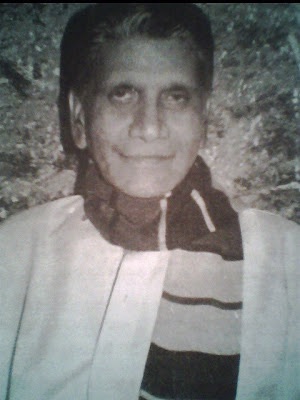


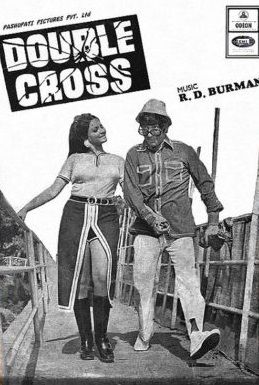
.jpg)


